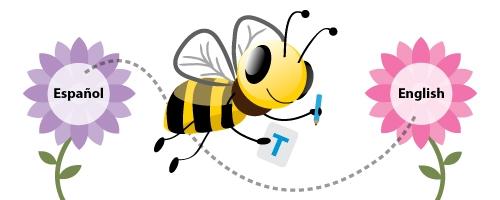Hola! Are you looking forward to jump-start your career as a Spanish translator ? Do you wish to strengthen your professional portfolio? Do you want to maximize your chances at a better alternative for a successful career as a Spanish translator ? Look no further because all your queries will be answered right now!
Initially, Spanish Translation was a slow moving industry. But, in wake of the recent rise in interactivity levels on a global basis, more jobs for talented and proficient Spanish translators are coming out. Although, your job as a Spanish translation professional wouldn’t be equivalent in terms of structure and remuneration to most regular-industry jobs, you will still enjoy the perks of useful training and development. It wouldn’t be wrong to say that as the popularity bar of this profession is going higher, so are the number of applicants for it. These days, organizations on the lookout to hire a capable candidate are bombarded with innumerable resumes. It is not surprising that companies have become strict with their recruitment standards.
Here are some tips that will help you understand the situation better, and hopefully, help you make a more informed decision :
The Spell of the Certification Wand!
In light of the noticeably skewed ratio of available translation jobs and prospective applicants, it is necessary to furnish a plus factor regarding your competency in your resume. The best representative of one, is a certification of your capability. Being a certified Spanish translator could increase your chances of a job ten fold. In comparison to other non-certified applicants for the same profile, your certificate will give you an added advantage.
The Alternative of Graduation!
Just like certifications in Spanish translation, a graduate degree in same, provides equal benefits. There are many universities and colleges that offer Graduate and/or post- secondary courses.
Research is the Need of the Hour!
Companies prefer translators who are certified and come with substantial credentials. There is a long list of universities and institutes that provide similar courses and certifications. These courses are feasible only when they are value, cost and time effective. You could begin with a detailed research of the different institutions involved in creating a certified Spanish translator. Different universities have different policies for selection of their students. You could visit them and ascertain accordingly, as regards your requirements.
Specialization Matters!
In case you are interested in a certain field or industry, you could obtain specialization certification/degree in the desired area of your interest from an accredited institute . For example, someone interested in legal or medical translations can obtain specialization degrees and certificates for the same.
Make the Most of your Time!
Once your choice of school has been finalized, complete your course requirements as efficiently as you can. it is also a good option to undergo some sort of language proficiency tests. These tests will add value to your resume and support your well deserved certification incomparably. These tests are a proof that you have the desired skill-set for a certified Spanish translator.
Once you have completed your course of study, the next big step is to effectively advertise your abilities. Besides the usual job application process, you could also advertise through a personal website or blog. Also, keep up with the latest in industry trends and related technology. If you want to make a mark in the highly competitive translation industry, considering these tips could do the trick for you.

